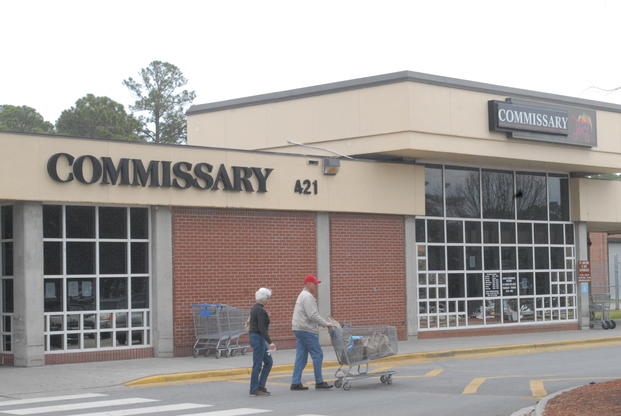A new study says the Defense Commissary Agency would likely have to increase prices 29 percent to make up for budget cuts proposed by the Defense Department.
But would that keep you from shopping there?
The report hypothesizes that it would. Researchers with the RAND Corporation examined data from studies on civilian-based grocery chains as well as previous studies on commissary shoppers. And they concluded that because of a combination of factors, including the availability of other stores and the distance many commissary shoppers travel to get there, a price increase would drastically cut the amount of money shoppers spend and the number of times they come to commissary stores.
The result? Lower revenue for the commissary and, potentially, continued budget shortfalls.
You can see my news story about this over on Military.com.
Here's the deal: the Defense Department wants to cut the commissary's tax-payer $1.3 billion funding by $1 billion. To do that they need to find a way to pay for the stores to stay open -- and that would mean raising prices. Right now the commissary sells everything at cost plus that 5 percent surcharge you see on the bottom of your receipt. That pays for store construction and maintenance. The tax-payer funding pays for things like employee costs and shipping goods to rural and overseas stores.
There are a few unique things about commissary shoppers, the report says, that make you a little different than the typical grocery consumer.
First, they said, previous studies have shown that you don't mind traveling a little bit to get to your commissary. On average, the report says, commissaries are 2.5 times further away from you than your local grocery store. (That sounds about right. A quick Google maps stop shows that my commissary is exactly three times the distance of my nearest civilian-based grocery store). But patrons are willing to make the drive because they perceive the savings to be about 20 percent over what they would spend at Walmart, it says. (Actual DeCA numbers show 30 percent, but there's some disagreement about how accurate that data is due to the type of goods for which it accounts).
Raising prices about 29 percent, the report says, would reduce the savings we see by shopping there to about 10 percent over civilian based stores. But since we already think we only save 20 percent, for the majority of us the savings would barely register and, therefore, going to the commissary would no longer be worth the trip.
Another difference is in the amount shoppers typically spend at the commissary per visit -- $65.79, far more than the $35.01 average spent per trip in civilian stores, the report says. That tells researchers that a high number of commissary shoppers are traveling far distances to get their and stocking up while they are at it.
The problem? Those types of people are very easily impacted by price changes (because why would you travel long distance to spend only 10 percent less than at Walmart?).
But what the researchers lacked for this report was any data on this particular question from actual shoppers. That's where you come in.
Now, I know that a poll here is no where near as scientifically sound as what the experts at RAND would produce. But I wanted to ask anyway -- if prices increased about 29 percent at commissaries, would you still shop there? Take our poll and then give me your thoughts in the comments.
%embed1%









